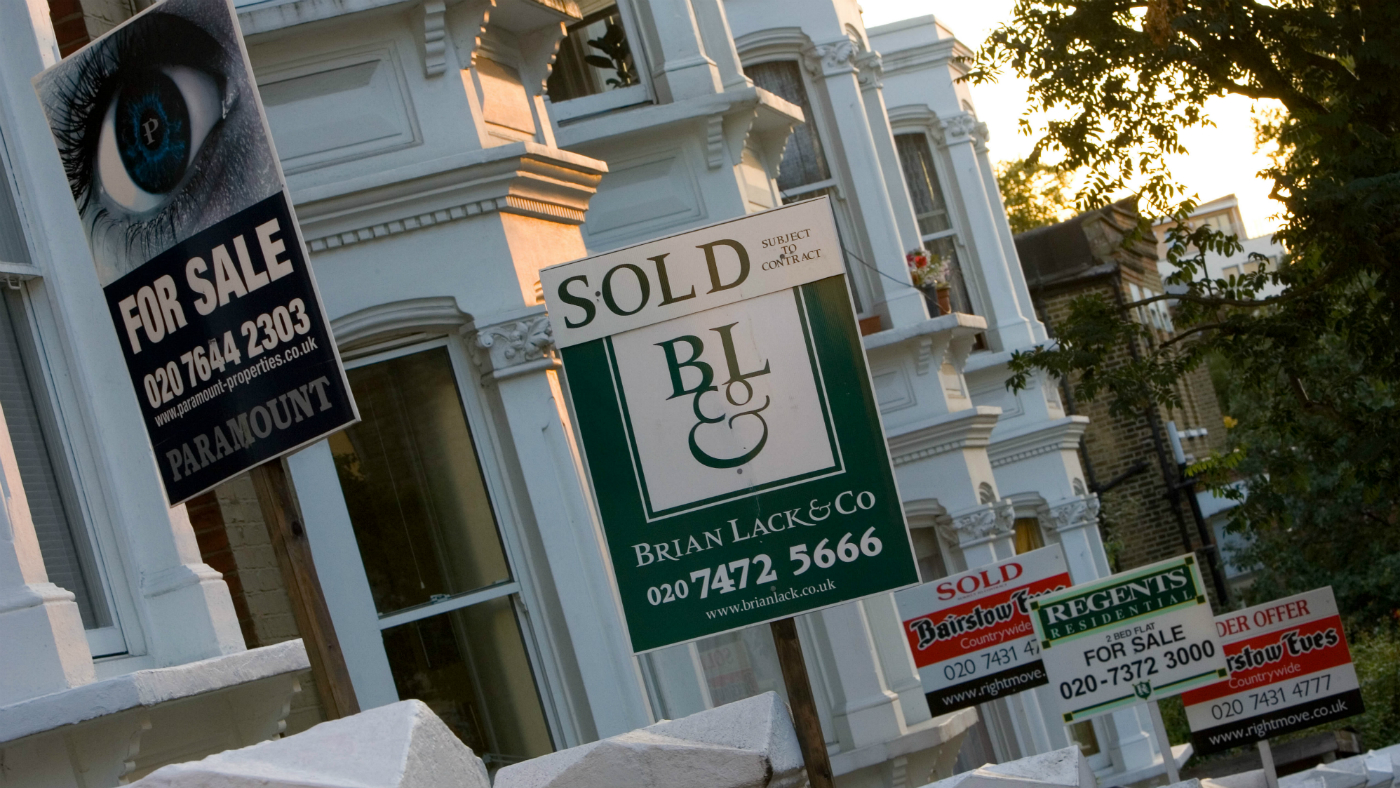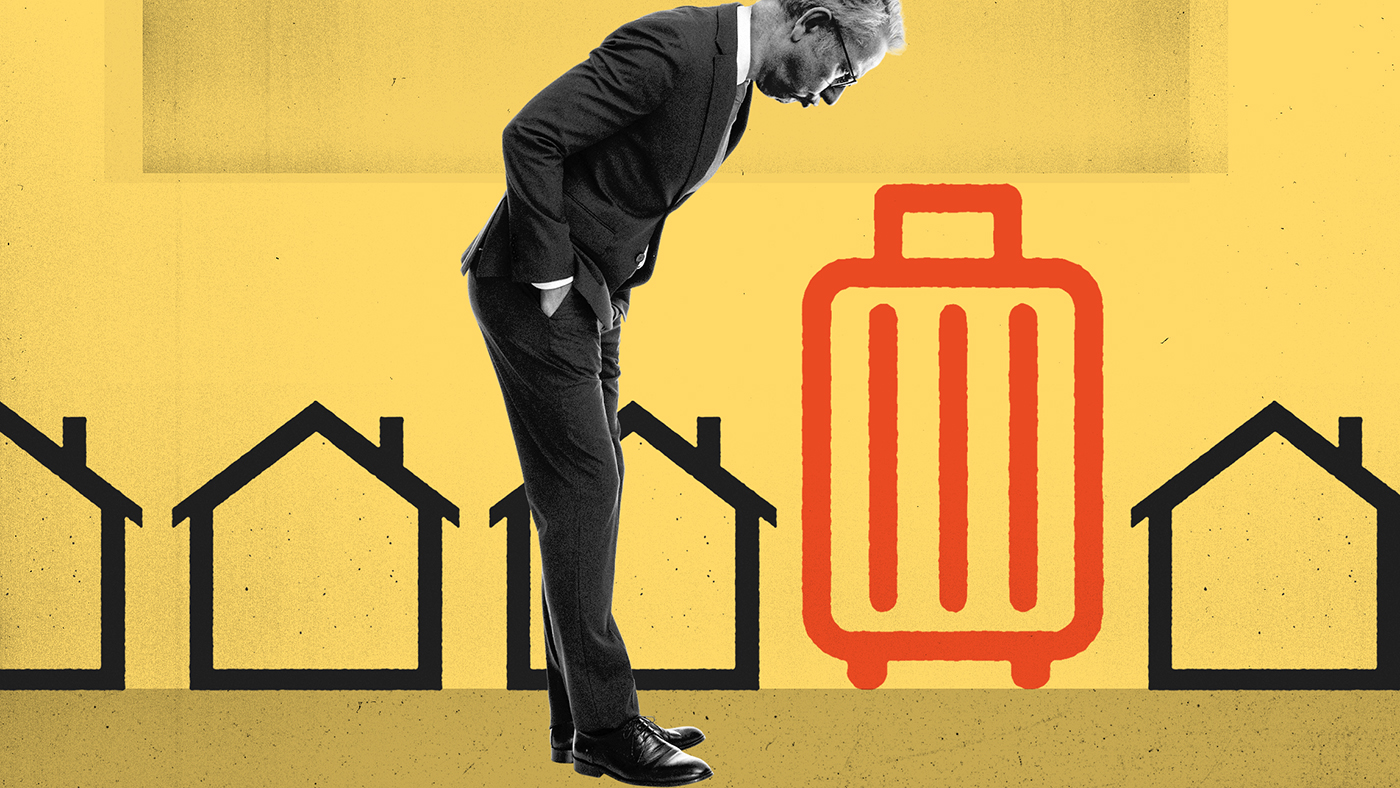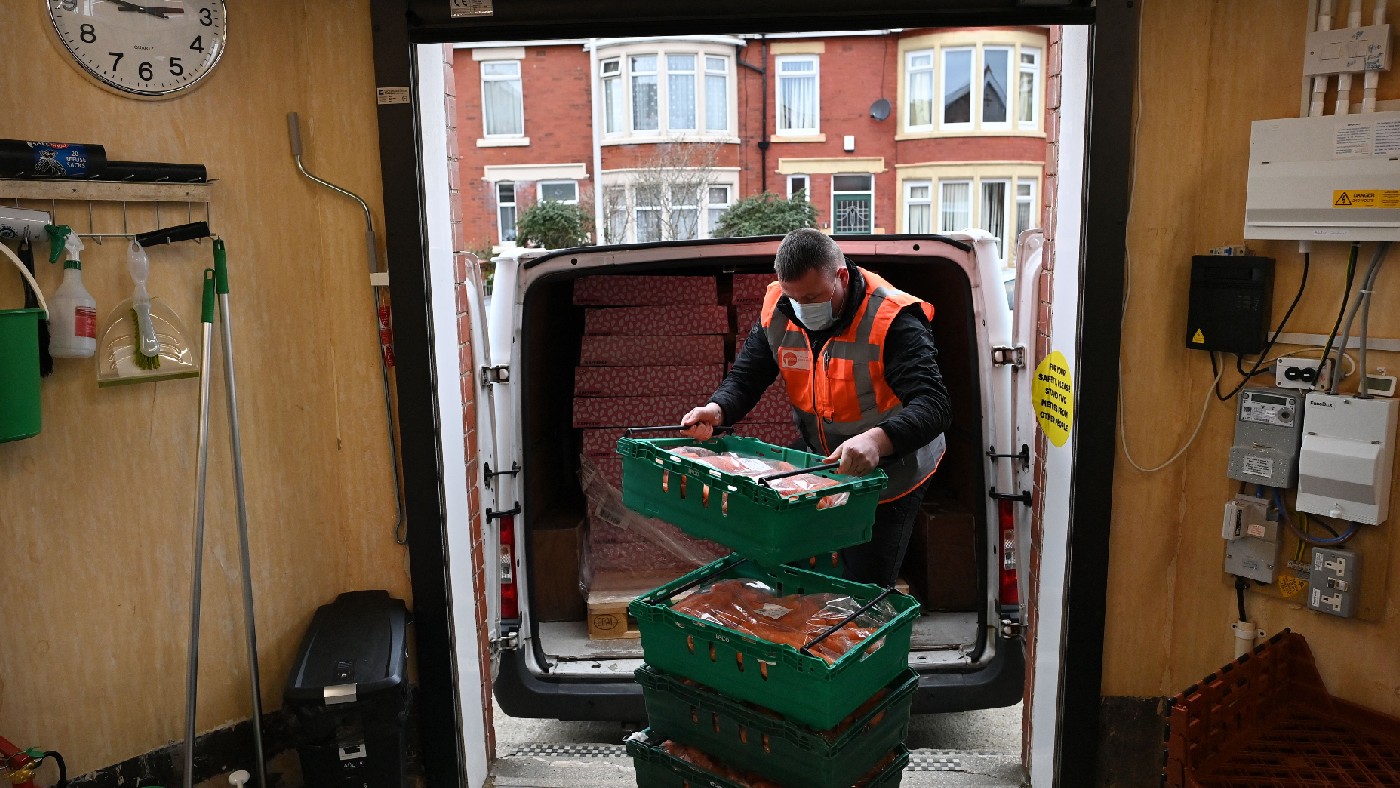Freehold purchase: how reforms would cut huge costs for leaseholders
The Law Commission is pushing to make it easier for leaseholders to buy the freehold of their property

A free daily email with the biggest news stories of the day – and the best features from TheWeek.com
You are now subscribed
Your newsletter sign-up was successful
A series of proposed housing reforms will give leasehold homeowners “more control” over their homes and cut the “huge cost” of buying a freehold, according to a government watchdog.
The Law Commission is pushing for changes to make it easier for leaseholders to purchase the freehold of their property from landlords.
“Millions of homeowners” are caught in the so-called “leasehold trap”, says The Guardian. According to the Government, the UK has about four million leasehold homes.
The Week
Escape your echo chamber. Get the facts behind the news, plus analysis from multiple perspectives.

Sign up for The Week's Free Newsletters
From our morning news briefing to a weekly Good News Newsletter, get the best of The Week delivered directly to your inbox.
From our morning news briefing to a weekly Good News Newsletter, get the best of The Week delivered directly to your inbox.
Freehold vs leasehold
A freeholder owns a property and the land it’s built on outright. Owners of a freehold property are therefore responsible for maintaining the building and land.
With a leasehold, however, the buyer owns the property and its land only for the duration of the lease agreement with the freeholder: when the lease expires, ownership reverts to the freeholder.
“Most houses are freehold but some might be leasehold – usually through shared-ownership schemes,” the Money Advice Service says. “Most flats and maisonettes are owned leasehold, apart from in Scotland where there are very few leasehold properties.”
A free daily email with the biggest news stories of the day – and the best features from TheWeek.com
England and Wales retain “particularly draconian rules regarding ground rent”, according to Sebastian O' Kelly, director of the Leasehold Knowledge Partnership. He told Business Insider: “If you own a flat in France or Italy, you and your neighbours all own the building — the land, the roof, the lift-shaft, the corridors.
“In England, a leasehold is a tenancy. That means you buy a number of years within some walls.”
Why are leasehold properties expensive?
Historically, leaseholders would usually play a nominal fee in the region of £10 a year, known as a "peppercorn" rent, to the freeholder in order to enforce the terms of a lease, Business Insider says. “That began to change around the turn of the century when developers spotted the potential for a huge new revenue stream.”
“They began to insert clauses into leasehold contracts, some of which saw ground rents double every ten years, often reaching thousands of pounds.” This is on top of service charges for general property maintenance, which stands at an average of £1,863 a year.
Consumer group Which? claims that thousands of leashold homeowners are now "trapped" in homes they can't sell because of the obligation to pay extortionate ground rent and fees to freeholders if they want to make changes to their properties.
How will the new proposals work?
In December last year the Law Commission was asked by Savid Javid, who was then communities secretary, to find ways to make buying out a lease “much easier, faster and cheaper”, The Guardian reports.
In its response, the commission published two options. The first is a new “valuation formula” that “could be based on ten times the ground rent” or “10% of the value of the property”, saying that “any new rules must reduce the current cost for leaseholders”. It added that a simple formula had the benefit of being easily understood and would reduce legal costs.
Its second option is to standardise the existing regime for leasehold valuations, removing a complicated element called “marriage value” that it said currently increases the cost paid by leaseholders.
A rule requring leaseholders to have owned their home for two years before trying to buy the freehold would also be abandoned under the new proposals, The Sun reports.
-
 The 8 best TV shows of the 1960s
The 8 best TV shows of the 1960sThe standout shows of this decade take viewers from outer space to the Wild West
-
 Microdramas are booming
Microdramas are boomingUnder the radar Scroll to watch a whole movie
-
 The Olympic timekeepers keeping the Games on track
The Olympic timekeepers keeping the Games on trackUnder the Radar Swiss watchmaking giant Omega has been at the finish line of every Olympic Games for nearly 100 years
-
 No place in the sun: is this the end for holiday home owners?
No place in the sun: is this the end for holiday home owners?Today's Big Question New law could require landlords to obtain permits to rent properties on sites like Airbnb
-
 Cannabis users ‘can wake up during surgery’
Cannabis users ‘can wake up during surgery’feature And other stories from the stranger side of life
-
 The pros and cons of van life and other unconventional housing
The pros and cons of van life and other unconventional housingPros and Cons Life on the road can be liberating but hygiene is only one of the challenges
-
 What happened to Awaab Ishak?
What happened to Awaab Ishak?Speed Read The two-year-old died of a cardiac arrest after prolonged exposure to mould in his home
-
 What next after the four-year Grenfell fire inquiry ends?
What next after the four-year Grenfell fire inquiry ends?feature Final ruling not expected until next year when police will decide on criminal charges
-
 ‘Kirstie Allsopp telling young people off won’t help them get on the property ladder’
‘Kirstie Allsopp telling young people off won’t help them get on the property ladder’Instant Opinion Your digest of analysis from the British and international press
-
 ‘Levelling up cannot just be a sound bite. It must be a prescription for saving lives’
‘Levelling up cannot just be a sound bite. It must be a prescription for saving lives’Instant Opinion Your digest of analysis from the British and international press
-
 Is Insulate Britain the wrong group to sell the right message?
Is Insulate Britain the wrong group to sell the right message?Today's Big Question Extinction Rebellion offshoot has blocked junctions of M25 to demand immediate action on home insulation